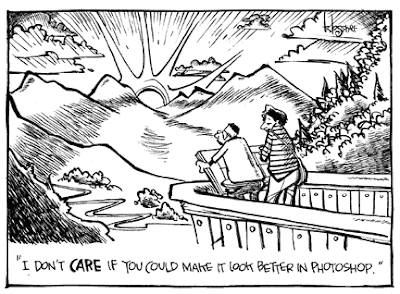
On page 183 of “critical cyberculture studies” it is written that “many people wish to learn about their culture because they want to recapture the power to name themselves. That is, they need an identity, not only so they know their own roots but also so others can learn of their roots”.
 I personally can see that after more than ten years away from my birth country, I am finding difficult to not have a real identity, I am Australian citizen but I am equally a Swiss citizen, and I am finding it more difficult as the years pass, for many not to know anything about my past and my roots. I am proud to be Australian but I am also proud to be Swiss. I am proud of my personal history but it is a history that only my own family and really closed friends now, not anyone else. I can now with my personal experience understand how so many cannot really speak about their adoptive country as the one they really feel their own because they are still considering their birth country as part of them (often it is the country where they have spent their youth and grew man or woman). I had a chat one day with someone that came in Australia 20 years ago from Bulgaria and had four children born here in Australia. He told me that even if he was calling Australia home, that he loved this country and it was where he would finish his life, his heart was still in Bulgaria. I believe this is often what could be named as your roots. I read on the page 196 about who could be a Diaspora in Modern society and I have seen that It was funny to see that I could put a tick to all six qualification to be a classic exemple of the conventional understanding of Diaspora and I suppose so many migrant would be part of it too.
I personally can see that after more than ten years away from my birth country, I am finding difficult to not have a real identity, I am Australian citizen but I am equally a Swiss citizen, and I am finding it more difficult as the years pass, for many not to know anything about my past and my roots. I am proud to be Australian but I am also proud to be Swiss. I am proud of my personal history but it is a history that only my own family and really closed friends now, not anyone else. I can now with my personal experience understand how so many cannot really speak about their adoptive country as the one they really feel their own because they are still considering their birth country as part of them (often it is the country where they have spent their youth and grew man or woman). I had a chat one day with someone that came in Australia 20 years ago from Bulgaria and had four children born here in Australia. He told me that even if he was calling Australia home, that he loved this country and it was where he would finish his life, his heart was still in Bulgaria. I believe this is often what could be named as your roots. I read on the page 196 about who could be a Diaspora in Modern society and I have seen that It was funny to see that I could put a tick to all six qualification to be a classic exemple of the conventional understanding of Diaspora and I suppose so many migrant would be part of it too. 
 The Internet has allowed many in our world of today to be aware of so many different cultures other than their own and so in fact often think other cultures are better than theirs. But as we can read on page 184 “this return to the homeland is also desired by some people who reside within the homeland and who believe globalisation has destroyed their motherland and culture” (Ignacio 2005). I do personally think that in a way the Internet has allowed us to have the knowledge of so many different cultures to the detriment of our own culture. We are often more aware and more interested to hear about what is going on in the US or other countries than what is going on in our own countries. We are often more aware of the American culture than our own.
The Internet has allowed many in our world of today to be aware of so many different cultures other than their own and so in fact often think other cultures are better than theirs. But as we can read on page 184 “this return to the homeland is also desired by some people who reside within the homeland and who believe globalisation has destroyed their motherland and culture” (Ignacio 2005). I do personally think that in a way the Internet has allowed us to have the knowledge of so many different cultures to the detriment of our own culture. We are often more aware and more interested to hear about what is going on in the US or other countries than what is going on in our own countries. We are often more aware of the American culture than our own.
Having migrated in Australia nearly five years ago, I am still able to continue to follow what is going on in Europe via the Internet. I can follow everyday the news of Switzerland and Australia, exactly at the same time by simply opening two windows on my computer. But I have also seen that in fact the Internet is just making it harder to accustom myself to this new country that is Australia by in fact allowing me to have one foot in my birth country and another foot in my adoptive country. As we can read on page 184, “ these imaginary returns to either a home never seen or a home never experienced …”(Ignacio 2005). It does not always need to be a home never seen or experienced but it can also be that the internet help to imagine a life that would have been in the other country than the one we are living in, whichever. Again I believe you can really understand this idea if your are a migrant, not if you are an expatriate, a visitor, an exchange student, or anyone that is for a short term in a country. Having loved to be in every countries I lived before, I was often judgmental of people thinking like I do now. I did not really think of the loss of their history, the loss of part of their culture. I could not understand their feelings before, as all the countries I have been before where not for long term, for life.
I can understand that many will have imaginary ideas of what would go on in  a country where they never lived. I had some. Often the reality is far from what we thought or what other people told us. The Internet should normally help us see what is really going on in a country but it does not as someone often see or understand what he wants to see or understand. The United States of America is a good exemple of so many wanted to live there, this democratic country where everything can be possible, where everyone can be successful and can become rich. Although they coud easily find out about this country, almost as if they were living in this country, find out about all the not-so-nice-things happening there, find out about how not so democratic this country is, where not everyone becomes rich and famous, they still wants to go there.
a country where they never lived. I had some. Often the reality is far from what we thought or what other people told us. The Internet should normally help us see what is really going on in a country but it does not as someone often see or understand what he wants to see or understand. The United States of America is a good exemple of so many wanted to live there, this democratic country where everything can be possible, where everyone can be successful and can become rich. Although they coud easily find out about this country, almost as if they were living in this country, find out about all the not-so-nice-things happening there, find out about how not so democratic this country is, where not everyone becomes rich and famous, they still wants to go there.





